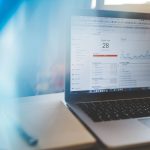It's no secret that marketing has undergone a major transformation since the advent of the Internet. Now that the majority of consumers own a smartphone, Big Data makes it possible for marketers to engage consumers across a variety of touchpoints and influence every stage throughout the buyer's journey. Big Data has, essentially, driven the transformation of marketing from what … [Read more...] about From Art to Science: How Big Data & Analytics Have Transformed Marketing
Big Data
Learn everything you need to know about big data. Find out how companies are using this revolutionary technology and what it means for your business strategy.
Why Prescriptive Analytics Is the Future of Big Data
Big Data has ushered in an era of data analytics that is taking different forms, including prescriptive analytics. This type of business analytics helps you find the best approach for a specific circumstance. It is also considered the third or final part of business analytics, which also encompasses descriptive analytics and predictive analytics. Prescriptive analytics … [Read more...] about Why Prescriptive Analytics Is the Future of Big Data
How to Overcome the Hurdles of Big Data in Marketing
There are many things to look out for when it comes to big data and how advertisers will use this information in the future. Its impact will be omnipresent. This is why there is a lot of information to examine when it comes to the influence that big data will continue to have on businesses and the way they handle large amounts of information. The force that big data will have … [Read more...] about How to Overcome the Hurdles of Big Data in Marketing
Using Big Data, AI Can Predict the Next Bestseller
Less than one-half of one percent of all aspiring authors reach the best-seller list. Publishers receive thousands of manuscripts a year and even the literary titan like T.S. Eliot erred when he rejected the now-famous novel "Animal Farm" by George Orwell. Now, Two scientists, Jodie Archer and Matthew Jockers claim to have created a new artificial intelligence (AI) algorithm, … [Read more...] about Using Big Data, AI Can Predict the Next Bestseller
Selling BioMetric Data as Big Data
Are you reading this on your phone? Did you just use your fingerprint to sign in? Remember when that seemed futuristic? It wasn't that long ago, in truth. It seems that in just a few years biometrics has gone from a niche concern to being woven into many of the products we take for granted. Increasingly, our devices take measurements, from our fingerprints to our facial … [Read more...] about Selling BioMetric Data as Big Data
What is big data?
Big data is a term that refers to the massive amount of digital data created and shared every day. Big data can transform how we live, work, and communicate. It can be used to improve everything from public health and urban planning to business and marketing.
Big data is also changing the way we think about privacy and security. The volume, velocity, and variety of big data present challenges and opportunities for organizations and individuals. Regardless, big data is here to stay, and its impact will only continue to grow in the years to come.
What is big data analytics?
Big data analytics is the process of turning large, complex data sets into actionable insights. Businesses use various analytical tools and techniques, including machine learning and statistical analysis, to do this.
Big data analytics can be used to improve decision-making in areas like marketing, operations, and customer service. It can also be used to identify new business opportunities and optimize existing processes. With the help of big data analysis, businesses can gain a competitive edge by using their data better.
Want to learn more about big data? Datafloq has courses available. Contact us to get started.
When was big data introduced?
The term big data was coined in the 1990s, with some giving credit to John Mashey for popularizing the term. However, the concept of big data has been around for much longer.
Where does big data come from?
In the early days of computing, scientists and businesses began to realize that the amount of data being generated was increasing exponentially. As a result, they began to develop new methods for storing and processing data.
Over time, these methods have become increasingly sophisticated and have played a key role in enabling businesses to make sense of vast amounts of information. Today, big data is used in various industries, from retail to healthcare, and its importance is only likely to grow in the years to come.
What are examples of big data?
One of the most common examples of big data is social media data. With over 2 billion active users, Facebook generates a huge amount of data every day. This includes information on user interactions, posts, and even location data. Analyzing this data can help companies better understand their customers and target their marketing efforts.
Another example of big data is GPS signals. These signals are constantly being generated by devices like cell phones and fitness trackers. When combined with other data sets, GPS signals can be used to provide insights into everything from traffic patterns to human behavior. Finally, weather patterns are another type of big data set. By tracking these patterns over time, scientists can better understand the impact of climate change and develop strategies for mitigating its effects.
How do companies use big data?
Companies use big data in marketing, product development, and customer service. By analyzing large data sets, businesses can identify patterns and trends that would be otherwise difficult to spot. For example, a company might use big data to track customer behavior patterns to improve its marketing efforts.
Alternatively, a company might use big data to improve its products by identifying areas where customers are most likely to experience problems. For instance, big data can be used to improve customer service by finding pain points in the customer journey. Ultimately, big data provides companies with a valuable tool for gaining insights into their business operations.






